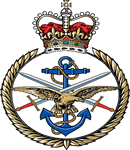Commemorated: | |||
| 1. Memorial: | St. Vaast Post Military Cemetery, Richebourg-L'Avoue | III. S. 7. | |
| 2. Book: | The (1921) Masonic Roll of Honour 1914-1918 | Pg.130 | |
| 3. Memorial: | The (1940) Scroll - WW1 Roll of Honour | 48B GQS | |
Awards & Titles: | |||
Service Life:
Campaigns:
- The First World War 1914-1918, World-wide.
| Unit / Ship / Est.: 13/Royal Sussex Regiment |
13th (Service) Battalion (3rd South Down) Formed at Bexhill on 20 November 1914 by Lieut-Col. Lowther, MP and Committee. Moved to Maidstone in July 1915 and then adopted by the War Office. Moved to Aldershot in September 1915. October 1915 : moved to Witley and attached to 116th Brigade in 39th Division. Landed at Le Havre in March 1916. 23 May 1918 : reduced to cadre strength. 17 June 1918 : transferred to 118th Brigade in same 39th Division. 14 August 1918 : disbanded in France, personnel going to 1/4th Battalion. |
| Action : Actions in Spring 1916 |
Actions in Spring 1916 covers a number of non specific actions on the Western Front in the period February to the end of June 1916. Much of this period concerned the build up to the Battle of the Somme, particularly the acclimatisation of the Service Battalions (Kitchener Volunteers) to trench routine. As the Battle of the Somme occupied the plans for 1916 no significant efforts were made in other sectors. Many of the casualties could be considered 'routine'. During the period December to June 1916 5845 British soldiers died in 'minor trench operations'.
Detail :
MORRISS, James Allison, Lance Corporal, 13th (Service) Battn. The Royal Sussex Regt., Between the towns of Bethune and Armentieres, in the Pas de Calais, lies Richebourg l?Avoue. Richebourg played a significant, if somewhat dubious, role in the Battle of the Somme, and an infamous one in the history of Lowther?s Lambs, officially the 11th, 12th and 13th (Southdowns) Battalions of The Royal Sussex Regiment. The Battle of the Boar?s Head, Richebourg l?Avoue, was planned as a diversionary action to make the Germans believe that this area of the front was the one chosen for the major offensive of 1916. The intention was to prevent the Germans from moving troops to the Somme area, some fifty kilometres to the south. It was one of many similar diversions. The CO of the 12/Royal Sussex disagreed with the plan which he considered a pointless waste of life but was overuled. At 2.50 am the preliminary bombardment commenced, final preparations were made, and scaling ladders were placed against the trench sides to allow the men to go ?over the top?. The 12th Battalion, assembling in the front line at Ferme du Bois, while the artillery bombarded the enemy trenches, attacked at 3.05 am., on June 30th, seized the front line, which they held for four hours against considerably superior German forces, and even broke through to the support line, which they held for half an hour. Naturally it could not last. The Germans were ready. There is even a story that one man brought back a notice in English, announcing: ?Come on, Sussex boys. We?ve been waiting for you for three days!? A heavy barrage on the front line and communication trenches prevented reinforcements from being sent forward, the supply of bombs and ammunition gave out, and the valiant survivors were compelled to withdraw. The Battalion?s 429 casualties included 17 officers. On the 13th Battalion front the situation was even worse. The smoke bombardment there had drifted into the attackers, and the men had totally lost their direction. Some ended up advancing at an angle across No Man?s Land, exposing their vulnerable flanks to the Germans. Many were mown down in waves. A ditch existed in front of the British trenches, and carrying parties with small bridges had gone forward to assist in the crossing of it. These had been amongst the first to fall, and very few of the bridges were in place. Most had to scramble in and out of the ditch, as machine-gun fire swept up and down. On reaching the German front line, most of the wire was intact, and very few of the 13th ever made it into the German trenches. By the close of operations a handful of survivors made their way back to the British front line. Unfortunately Lance Corporal James MORRISS was not one who survived. During this action CSM Nelson Victor CARTER of A Company 12/Royal Sussex won the VC Sources; Rugivny Vol III Paul Reed
Masonic :
| Type | Lodge Name and No. | Province/District : |
|---|---|---|
| Mother : | Astley No. 2997 E.C. | Northumberland |
Initiated | Passed | Raised |
30th November -0001 | 30th November -0001 | 30th November -0001 |
Source :
The project globally acknowledges the following as sources of information for research across the whole database:
- The Commonwealth War Graves Commission
- The (UK) National Archives
- Ancestry.co.uk - Genealogy, Family Trees & Family History online
- ugle.org.uk - The records of the United Grand Lodge of England including the Library and Museum of Freemasonry
Additional Source:
- Founder Researchers : Paul Masters & Mike McCarthy
- Researcher : Bruce Littley

